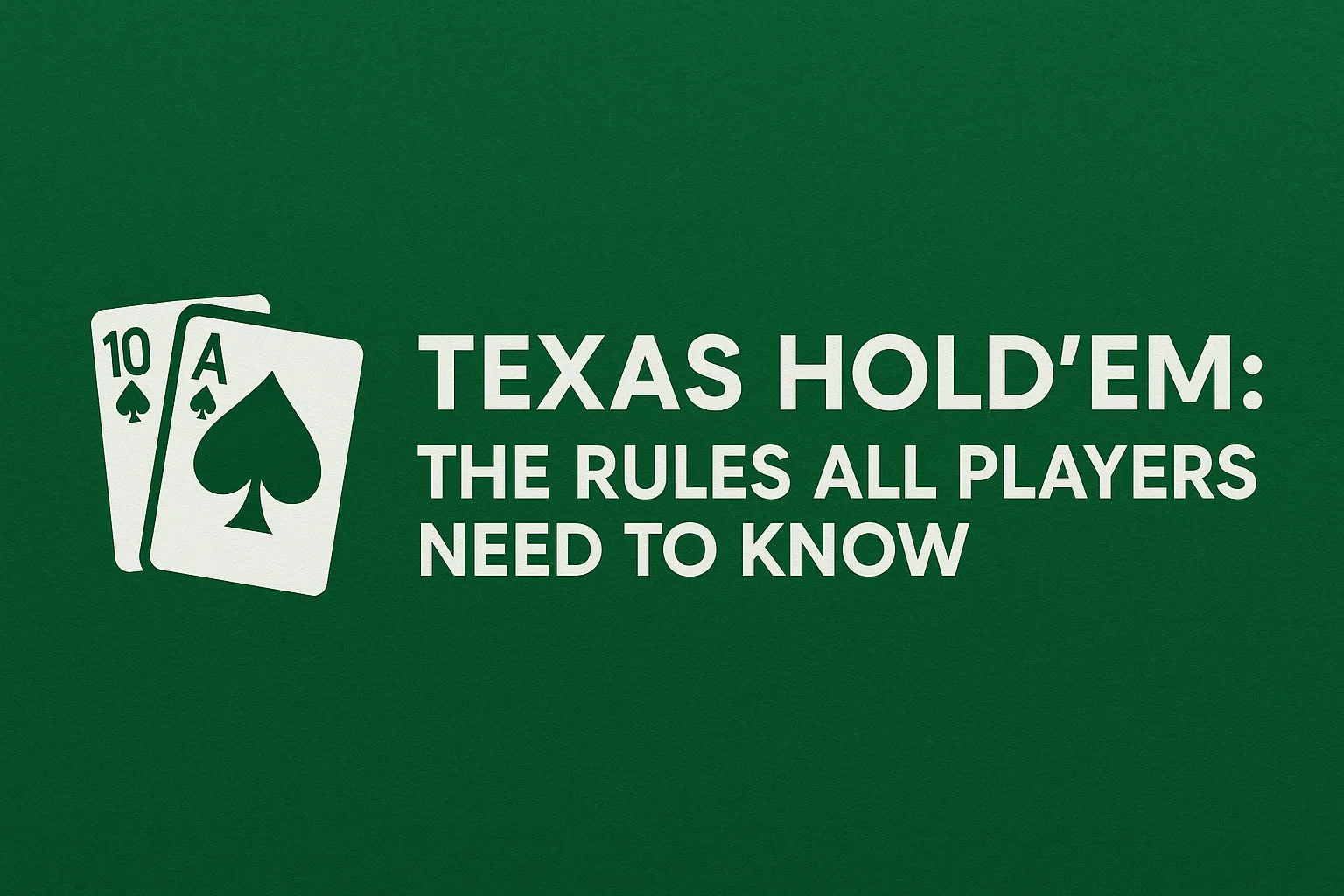
It’s hard to find someone who hasn’t at least heard of Texas Hold’em—the most popular version of poker in the world. For some, it’s just entertainment or a thrill. For others, it’s a way of life. Whether you’re learning for fun or planning to play for real money, many beginners start by exploring some of the top ultimate texas hold'em sites to test their skills and get a feel for the game.
Professional poker players make their living playing for real money. Like sport, poker has its stars: Daniel Negreanu, Tom Dwan, Phil Hellmuth, Eugene Katchalov, and so forth. They all started out as beginners, mastering the basic rules of Hold'em, and improving their skills one step at a time.
Whether you are a Nobel Prize winner, an Elon Musk fan club member, a corporate executive, or a home-spouse, you can be taught to play poker. And if that is your desire, we're here to walk you through it.
A Brief Look at the Origins of Texas Hold'em
When people consider the history of poker, they prefer to visualize cowboys playing cards in tumbleweed-strewn saloons of the Wild West. And while there is some truth to that, then it was generally another type called Draw Poker.
The Texas Hold'em we know today was likely developed by traveling poker player T. "Blondie" Forbes in the early 1900s. The breakthrough? Community cards—a development that set Hold'em apart from other versions. The first game using this method was recorded as having been played in Robstown, Texas.
Did you know?
Everyone knows why the "Texas" part of the name is there—but the origin of "Hold'em" is a secret. Others attribute it to Hold me, sweetheart, a poker expression from the 19th century.
How Hold'em Rose to Fame
Texas Hold'em came to catch the imagination of poker players and attracted the best players like Amarillo Slim, Johnny Moss, and Doyle Brunson. Because of its ideal combination of skill and luck, it became the favorite format of WSOP game players from the beginning itself.
Basic Rules of Texas Hold'em Poker
A table can support up to 10 players, often called a "full ring." Others are heads-up (2 players), 3-max, 6-max, 8-max, and 9-max.
The goal is simple: win the pot by making the best five-card hand—or get your opponents to fold.
Both players receive two hidden cards, which they combine with a maximum of five shared cards to make the best possible hand. Five shared cards are not always distributed, however. Skillful players often use bluff and betting strategy to win pots without laying their hands open to a showdown.
There are four bets, normally called "streets":
- Preflop
- Flop
- Turn
- River
Types of Bets in No-Limit Hold'em
All poker pots are started with blinds, which are compulsory bets made by the two players to the immediate left of the dealer. The small blind (SB) posts a predetermined amount, and the big blind (BB) posts double that. For example, SB posts $1, so BB posts $2—the compulsory bet for the round. After posting the blinds, pocket cards are dealt.
Did you know?
Blinds in cash games are always the same. Blinds in tournaments increase at timed intervals (usually every 10–15 minutes).
Once blinds have been established, it is possible for other players to call, raise, or fold. The action moves one way around the table, with each street offering new opportunities to bet, bluff, or check.
Round 1 – Preflop
SB bets $10, BB (Hero) bets $20. Two private cards are dealt to each active player.
Action starts with the UTG (Under the Gun) player and ends with the blinds.
Round 2 – Flop
Three face-up community cards are dealt. Each active player evaluates how these impact their hole cards. Action starts with the small blind.
Round 3 – Turn
A fourth card is added to the board. Betting follows regular procedure.
Round 4 – River
The fifth and final community card is dealt. If more than one player remains after betting, we go to showdown.
Who Wins at the Showdown?
Remaining players reveal their hands, and the pot takes for the player with the best five-card hand. Offline, last to bet usually shows first—but anyone may show first.
In online Hold'em, the system automatically conducts the showdown and instantly announces the winner.
In our example, both of the contestants make a hand of eights but Hero wins because of a higher kicker—an ace of diamonds.